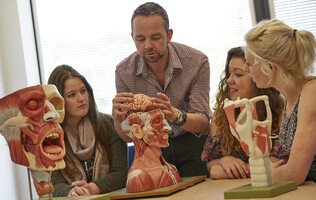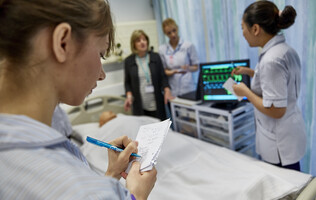We provide a stimulating and supportive learning environment for undergraduate and postgraduate education and continuing professional development.
Our expertise in teaching spans professional programmes in nursing, midwifery, physiotherapy, speech and language therapy, occupational therapy, operating department practice, prescribing, dietetics and paramedic science.
Our innovative teaching is complemented by close relationships with clinical and practice partners, and the learning experiences we offer to our learners to gain practical ‘hands on’ participation. Learners benefit from our Immersive classroom, Movement Lab, Skills laboratories, Anatomy Suite, the Norwich Electronic Assistive Technology Centre and the Edith Cavell Building Simulation Centre. Our courses are informed by our world-class research, which is focused on addressing the global health challenges of the 21st century.
Read our helpful guide to studying Health Sciences (PDF)
Come and visit us
Attending an Open Day is a great way to get a feel for the campus, the students and the courses on offer. The day is an informal and fun way for you to get an insight into university life.

Practical skills and experience
On healthcare profession programmes, a significant proportion of study is developing key health care skills from healthcare practitioners from a variety of acute and primary care clinical placement settings.
Not sure what this means? Read our Frequently Asked Questions (FAQs) below to learn more about the practical experience element of studying with us - we also refer to this as practice education or placement.

Learning beyond registration and employability
We offer a wide range of post-registration and postgraduate education opportunities including short courses, continuing professional development days, stand-alone modules, and postgraduate programmes, encouraging our learners to advance their knowledge and practice expertise in line with contemporary evidence, research, and career advancements, through to consultant level practice.

:focus(1818x969:1819x970))